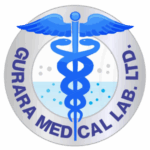Abuja, Nigeria’s capital city, is often praised for its clean layout, decent infrastructure, and relative calm compared to cities like Lagos. It’s home to diplomats, professionals, and a growing middle class. But beneath the surface of this well-planned metropolis lies a reality that many residents overlook:
Living in a modern city doesn’t protect you from everyday health risks.
In fact, due to rapid urbanization, environmental changes, and lifestyle habits, certain health concerns are surprisingly prevalent in Abuja. Whether you’re a long-time resident or new to the city, being informed about these issues—and knowing what to do about them—can make all the difference.
1. Malaria: Still a Major Threat—Even in the Capital
You’d think that living in the Federal Capital Territory (FCT) means malaria shouldn’t be a concern. Unfortunately, that’s not the case. Despite urban development, mosquito breeding sites are everywhere, especially during the rainy season when stagnant water collects around construction zones, flower pots, gutters, and open drains.
What to Watch For:
-
Sudden onset of fever
-
Sweating and chills (especially at night)
-
Body weakness and general fatigue
-
Headaches and body aches
What to Do:
-
Don’t just buy antimalarials at the pharmacy. Always get tested first with a Malaria Rapid Diagnostic Test (RDT) or visit a lab for a blood smear.
-
Use insecticide-treated nets, indoor sprays, and mosquito repellents regularly.
-
Eliminate standing water around your home or office.
📊 Did you know? Nigeria accounts for nearly 27% of global malaria cases, according to WHO. Urban areas like Abuja are not exempt.
2. Typhoid Fever: The Hidden Risk in Food and Water
Many Abuja residents rely on boreholes and water tanks, but that doesn’t always guarantee clean water. Combine that with street food, roadside suya, or unwashed produce, and it’s easy to see how typhoid bacteria sneak into your system.
Common Symptoms:
-
Persistent fever, especially in the afternoons
-
Stomach or abdominal pain
-
Loss of appetite
-
Weakness and occasional vomiting
How to Stay Safe:
-
Avoid self-diagnosis—typhoid shares symptoms with malaria.
-
Blood culture tests are the gold standard for diagnosis.
-
Always boil or treat water before drinking.
-
Practice good food hygiene—wash fruits, and ensure meat is well-cooked.
💡 Pro tip: Be wary of relying solely on the Widal test—it’s known for false positives. Insist on a culture test where possible.
3. Respiratory Infections: A Dusty Problem in a Growing City
Construction is booming across Abuja—from high-rises in Wuse to estates in Lokogoma. But all that dust, coupled with dry-season harmattan winds, makes respiratory issues more common than you’d expect.
Symptoms to Watch:
-
Persistent or chronic cough
-
Chest pain or discomfort
-
Wheezing or difficulty breathing
-
Fatigue, especially in older adults or children
What You Can Do:
-
Don’t ignore that “nagging cough.” It could be more than just dust irritation.
-
Get a chest X-ray or sputum test at a medical lab if symptoms persist.
-
Use a mask during harmattan or when exposed to dust at construction sites.
🧒 Note: Children and elderly individuals are most at risk due to weaker immune systems.
4. Hypertension: The Silent Killer in Urban Life
Life in Abuja can be stressful—rising costs, work pressure, traffic, and fast-paced living can take their toll. That’s why hypertension (high blood pressure) is becoming more common, even among people in their 30s.
Watch Out for These Signs:
-
Frequent or throbbing headaches
-
Dizziness or blurred vision
-
Chest pain or shortness of breath
-
Constant fatigue
Preventive Measures:
-
Check your blood pressure at least once a month—most pharmacies and labs offer this service for under ₦1000.
-
Cut down on salt, fried foods, and excessive alcohol.
-
Exercise regularly—even brisk walking helps.
-
Manage stress through relaxation or therapy.
🩺 Reminder: Hypertension often shows no symptoms at first. By the time it does, it could be serious.
5. Hepatitis B & C: The Invisible Threat Among Young Adults
Hepatitis B and C are viral infections that attack the liver. Abuja has seen a rising number of hepatitis cases, especially due to factors like:
-
Unprotected sex
-
Reused or improperly sterilized salon or barbing tools
-
Tattoos, piercings, and blood transfusions
Symptoms (Often Subtle at First):
-
Yellowing of the eyes (jaundice)
-
Dark urine
-
Joint pain and chronic fatigue
-
Nausea or loss of appetite
What You Should Do:
-
Get a simple blood test to check for hepatitis B and C status.
-
If you’re negative, consider getting vaccinated—especially for hepatitis B.
-
Use your own grooming tools or visit salons that practice strict hygiene.
-
Avoid sharing razors, needles, or personal hygiene items.
🧪 Health tip: Many medical labs in Abuja now offer hepatitis screening as part of affordable health checkup packages.
Final Word: Don’t Wait Until It’s Too Late
Living in Abuja has its advantages, but good infrastructure doesn’t guarantee good health. Many common health threats here are preventable or treatable—but only if you act early.
Whether it’s malaria or hypertension, the best thing you can do is get tested regularly and pay attention to your symptoms. Don’t assume you’re safe just because you’re in a high-end neighborhood or use borehole water.
Your health is your most valuable asset. Protect it by staying informed, getting tested, and making smart choices.
Need a trusted lab in Abuja for these tests?
Look out for accredited medical labs with qualified staff, clean facilities, and transparent pricing. Your safety starts with proper diagnostics.
Stay safe. Stay healthy. Abuja needs you at your best.


